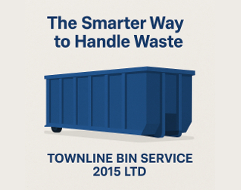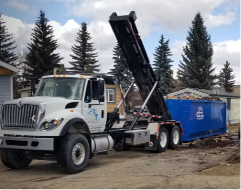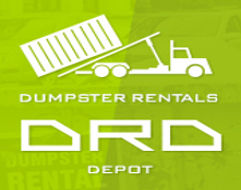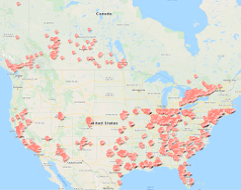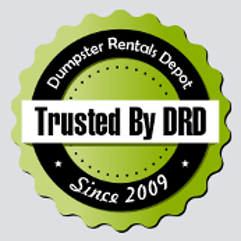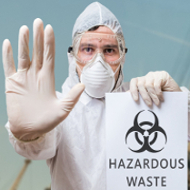Dumpster Diving is a Dangerous Job

First , check with your local police authorities to see if dumpster diving is legal in your area. Laws vary from county to county. In many jurisdictions garbage is not considered private property, so dumpster diving is considered as legal activities and divers cannot be charged with theft;
However, some counties, townships and municipalities have established regulations prohibiting scavenging trash, most notably in the United Kingdom. Australian Law reflects a thinly disguised intolerance of the practice. Dumpster divers may run afoul of laws regarding trespassing, invasion of privacy, environmental, or even in some cases "Theft". In addition police in most states have "move On" powers that are often brought to bare on scavengers. Learn the laws in your area and/or contact your local environment protection office or your local police department to inquire about the legality of diving practices. In many places it’s legal as long as you are not trespassing.
Make sure no one is around watching you. Dumpster diving is somewhat controversial, and divers are frequently confronted by shopkeepers or homeowners. While a confrontation is no big deal if handled properly, you should still try to avoid it. If you see people in the area, wait a while.
Step 2 . Have the right gear. Heavy-duty rubber gloves, a headlamp, a broom handle with the nail in it to hook bags a stepladder or stool, duck tape to seal damaged bags, wet wipes, hand sanitizer, a basic first-aid kit in case you hurt yourself and heavy-duty trash bags to cart off your haul, designated dumpster diving shoes, timing and restraint. Prepare yourself mentally. If you still see dumpster diving practices as disgusting, consider scavenging only items placed not inside the garbage bin but next to the containers such as electronic items, furniture, etc.
Step 3 . Network with other divers and get a partner (optional). As you get into dumpster diving, you'll likely meet other divers, and many, but not all, will be friendly and helpful. It helps to have a partner to hold heavy lids open and stand outside the dumpster if you decide to climb in. Share dumpster diving tips and experiences and you'll probably get some good tips in return. Consider joining an online dumpster diving forum or a local club. Other divers can keep a look out for items that you want.
Step 4 . Find the dumpsters in your area and keep track of when is the best time to go, when you find the best items and when the garbage company comes to pick up the bin. In residential areas, find out standard move-in and move-out dates. Set up your personal diving schedule. Ware a pair of coveralls over your clothes. When you are done for the night, strip them off, stuff them in the bag, and take them home for washing. Set aside an old pair of shoes to use during your dumpster diving hikes.
Step 5 . What to look for in dumpsters and when to dive according to what you're looking for. If you're just looking for unexpected treasures, you can look pretty much anywhere, but if you want something like food, search behind grocery stores and bakeries. Most stores throw out food at the expiration date, though much of it is still good, only a little past its peak. The best time to hit food stores and restaurants is just right after closing time, when they are thrown out what they don’t thing they will be able to sell the next day.
Look for larger items like furniture or electronic items sitting next to trash cans. Look online at dumpster diving forums for tips on where to go in your area.
While inside the trash bin you should look for heavy bags. Just rip them open in the dumpster to see if there are any products in them. If there are products in them you can put them outside of the dumpster and check them later or have your partner to do that.
Important: Understand food expiration labels. “Sell by” items remain good for several days past that date. “Use by” indicates the date the item will begin loose freshness; normally food remains safe to eat a few days past then; it just might not taste as good. Of course, if it looks or smells bad, don’t eat it – especially when it comes to meat and fish. Canned food stay good for years as long as the seal hasn’t been broken.
Look for larger items like furniture or electronic items sitting next to trash cans. Look online at dumpster diving forums for tips on where to go in your area.
Step 6 . Follow the two rules of dumpster diving etiquette: don’t take more than you can use, unless you plan to share your bounty; and leave the area tidier than you found it. Did you know in 2010 dumpster-diving college students found a speaking-engagement contract for former Alaska Gov. Sarah Palin and leaked it to a state senator, who forwarded it to the press.
Step 7 . How to clean and sanitize the products at home? Layer a towel on the flat surface; lay all the products on the towel, clean the product with water, paper towels and alcohol.
Cleaning is especially important with food. Check packaged items for holes and leaks and take special care to wash produce, preferably in a mild bleach and water solution. The food you buy in grocery stores is usually treated in this way anyway, so this isn't a drastic step.
Step 8
. Clean yourself thoroughly. Take a good shower with soap to wash the dirt and germs off.
Learn from your dumpster diving experiences and try to stay flexible as there are many unknowns when it comes to dumpster diving. Share what you've learned with others and help out those less experienced than you.
Step 9 . Finally, this is a dangerous job. Dumpsters are the dirtiest places and can spread diseases. They may kill you and/or your family members. Dumpster truck comes once or twice a week. If you get trapped in the truck you are likely to be crushed. Choose another job whenever possible.
Harry Cotten is the Dumpster Rentals Cooperative Customer Support Manager. You can find him and read more of Harry's posts by visiting Harry Cotten Google + profile.
- Published: 2013-12-26T16:58:43-08:00
- Author: Harry Cotten
